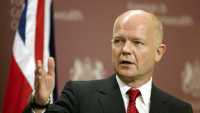By Eleven EU foreign ministers Published on December 3, 2011
THE EU is currently focused on the turmoil in the eurozone. That poses severe risks to economic growth across our countries. But these tumultuous economic and political times should not lead to the EU turning its back on its neighbourhood.
In particular, Turkey is an important partner as a new economic powerhouse for the single market and a growing regional power that could contribute to our shared foreign policy effort. We believe strongly in the benefits the Turkish accession process has brought both to the EU and Turkey and in its continued importance for driving progress towards shared goals such as economic competitiveness, energy security and regional stability.
Since the start of the new millennium, Turkey has grown in influence and authority as a regional power in the Western Balkans, Central and South Asia and the Horn of Africa. Turkish Foreign Minister Ahmet Davuto?lu has been a key interlocutor, not least on Afghanistan where he made a huge personal contribution to last month’s conference in Istanbul. With Turkey as host, for the first time, Afghanistan’s neighbours have agreed to implement political and security measures to underpin the cause of reconciliation. The ‘Arab Spring’ underlines the strong interests the EU and Turkey have in working together to ensure the region changes for the better. We welcome Turkey’s increasing participation in EU foreign policy discussions, where Turkey’s insight and influence have shown how the EU’s global reach can be strengthened by Turkey at a time of global uncertainty.
Turkish economic growth has been exponential. Turkey is the 16th largest economy in the world and will assume the Presidency of the G20 in 2015. Turkey is the EU’s seventh largest trade partner. This growth has been underpinned by close economic ties with the EU in which 46 per cent of Turkey’s trade is with the EU. More than two thirds of Turkey’s foreign direct investment is from the EU. With growth in Turkey around 10 per cent in the first half of this year, there is enormous potential for the close EU-Turkey economic relationship to deepen.
Turkey has also transformed its governance, society and democracy. Civilian control of the military has been firmly embedded and judicial reform is underway. The rights of minorities have gradually improved – most recently through legislation helping minority religious foundations to recover property confiscated in the 1930s. And Turkey is now embarking on a new transformation discussing replacement of the current constitution drafted by the military in 1980.
The EU has been at the heart of this transformation since the new millennium, the accession negotiations helping to guide the Turkish reform process. In support of Turkey’s reforms, the EU has committed technical assistance and funding worth over €750 million in 2011 including work to strengthen democratic institutions, protect fundamental rights and strengthen civil society. Recent progress in the accession negotiations has been disappointingly slow, but Turkey continues to pursue reforms to align its legislation with the EU acquis. We strongly welcome Enlargement Commissioner Štefan Füle’s “renewed positive agenda” for EU-Turkey relations. This offers new opportunities to reinforce economic relations, deepen dialogue, support Turkey’s domestic reform agenda and combat illegal migration, while making it easier to travel legally between the EU and Turkey. We look forward to working with Turkey on this agenda in a way which complements and supports the accession process.
Naturally, the accession process places requirements for reform on Turkey. It needs to do more to meet EU standards, including on fundamental rights. In its recent Progress Report, the European Commission noted concerns over how judicial processes were affecting freedom of the media, and that more work is needed to guarantee the rights of minorities. The new constitution is a significant opportunity to transform Turkey further, including by providing a framework to address the Kurdish issue, and we welcome Prime Minister Erdo?an’s commitment to a constitution that reflects the aspirations of all citizens. Turkey is experiencing a brutal wave of terrorism instigated by the PKK that we utterly condemn.
Turkey must also work to support a Cyprus settlement, and open its ports to the Republic of Cyprus as it has committed to do. A Cyprus settlement would have benefits extending well beyond the island, from aviation safety to more efficient EU/NATO co-operation. Negotiations on a comprehensive settlement have now reached an intensive phase and we welcome the commitment of President Christofias and Dr Ero?lu to work within the UN framework for a successful outcome.
Turkey’s accession process is of vital strategic and economic importance for both the EU and Turkey. We welcome Turkey’s commitment to continuing reforms to meet its European goal and offer her our full support. Together, the EU and Turkey can steer a safer path through the current global economic and political storms.
Article was released on www.euobserver.com on behalf of eleven EU foreign ministers: Audronis Ažubalis, Carl Bildt, Edgars Rink?vi?s, Erkki Tuomioja, Guido Westerwelle, Giulio Terzi, János Martonyi, Karel Schwarzenberg, Samuel Žbogar, Urmas Paet and William Hague, the foreign ministers of Lithuania, Sweden, Latvia, Finland, Germany, Italy, Hungary, the Czech Republic, Slovenia, Estonia and the UK.
via The EU and Turkey: steering a safer path through the storms – Cyprus Mail.



